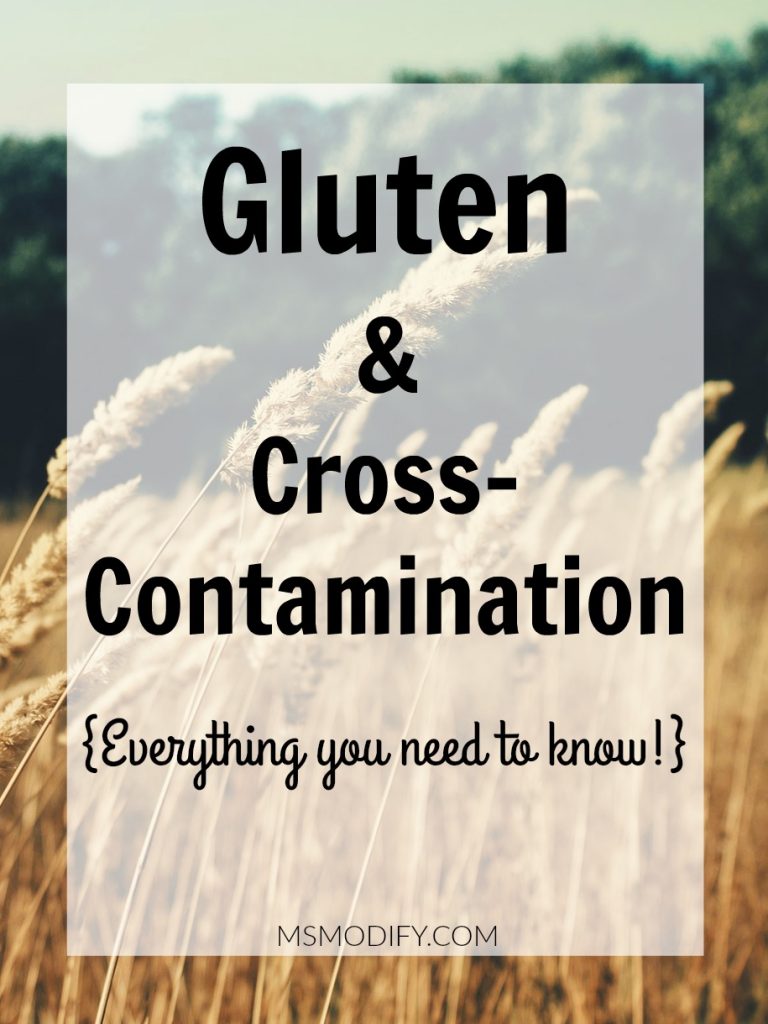I would say being aware and avoiding cross-contamination is one of the hardest aspects of having celiac disease. Not only do you need to be informed on where your food is coming from, but what it comes in contact with along the way.
Your thinking now needs to change. You not only have to be an advocate for yourself, but also an investigator. You might feel strange about it at first, but asking a million questions regarding anything that goes into your mouth needs to become part of your routine. Over time I promise this becomes second nature.
I’m so passionate about educating those on a gluten free diet about the importance of understanding cross-contamination, because unfortunately it’s something I learned the hard way. I was gluten free for almost a year before I learned the term “cross-contamination”, let alone understood how to truly avoid it.
What is it cross-contamination?
Cross-contamination is when your gluten free food comes in contact with enough gluten that will make you sick. This can happen at any time along the way from the fields all the way to your mouth. Cross-contamination can occur where the food is manufactured, packaged or prepared. It’s one thing to read labels and make sure your gluten free item is not prepared in a facility with wheat, rye or barley, but it’s another thing to be aware of your food preparation before it enters your mouth.
Why is it important to understand cross-contamination?
Even just a microscopic amount of gluten can cause a reaction and damage to the intestines for individuals with celiac disease. This could mean a crumb of wheat bread falls into the butter from double dipping the knife, or a trace of wheat flour on manufacturing equipment.
Where can cross-contamination occur?
- Your kitchen
- In someone else’s kitchen (Be careful attending parties)
- On the grill
- Restaurants
- Ice cream shops
- Bakeries
- Bars (be sure they use a clean shot glass or do a free pour when making mixed drinks)
- In packaged goods not certified gluten free
- In the bathroom (cosmetics, oral care products, etc)
Basic Tips on Avoiding Cross-Contamination:
- Have separate kitchen utensils. Everything from wooden spoons to cutting boards should be dedicated gluten free.
- Clearly label all gluten free products in your kitchen.
- Have a dedicated gluten free toaster.
- Make sure large appliances are thoroughly cleaned after gluten was inside (i.e oven).
- Keep gluten free and gluten containing products away from each other in the pantry.
- If at a restaurant or someone’s house, ask questions on how the food was prepared.
- If possible, oversee food preparation.
- Read labels carefully to see if they were produced in a facility with wheat, rye or barley.
- Educate your friends and family about cross-contamination and explain how you can get very sick from the smallest contact with gluten.
- Avoiding purchasing products in bulk bins that share the same scoop.
- Ask if french fries have been fried in the same oil as battered foods (i.e onion rings).
- Avoid ice cream from an ice cream shop, because they typically use the same scooper in all flavors and some, like cookies n’ cream contain gluten.
- Avoid buffets because you don’t know if someone used the same utensil in all items.
- Buy gluten free grains that are certified gluten free to ensure cross-contamination didn’t occur during processing.
Posts you might find helpful:
As always, if you’re unsure if cross-contamination occurred follow my motto “when in doubt, go without”!
If you’re new to the gluten free diet or are struggling with it, please don’t hesitate to ask me questions in the comments section or email me (kristina@msmodify.com) and I’d be SO happy to help you!



This is such an important post! I get sick from even the slightest bit of cross contamination and I’ve realised it really is so misunderstood!
Thanks! I agree! I didn’t learn until cross-contamination until a year after my celiac diagnosis!
I was diagnosed with celiac 5 years ago at the age of 8 and have been 100% GF since! We just had family over and my dad used my GF toaster for his non-GF bread. I’m not sure what to do!